Although many people long to become parents one day, the aspect that brings shivers down one’s spine is the actual birth itself. Not only is the process itself scary, but the costs of it can shock more than any horror movie jumpscare. Many Americans agree—the healthcare system is broken and there’s no one rushing in to fix it. However, there seem to be those that are fighting the ridiculous policies in the shadows.
One OB/GYN shared their experience with the vice president of a large health insurance corporation. They put forth a policy that reduced healthcare benefits for women who underwent cesarean section, only allowing them two days of hospital stay before being discharged, compared to the four days for vaginal births.
Ironically enough, that same vice president was put in a situation where she required a cesarean during the birth of her twins, with the OB/GYN following their policy to a T. It’s a case of malicious compliance if we’ve ever seen one! Of course, Reddit is full of stories that may be faker than Velveeta cheese; however, the discussion of insurance vs healthcare is as real as it gets.
So strap on in, dear readers, this one’s a doozy! Make sure to leave your thoughts and opinions in the comments below, and if you’d like another story similar to this, here’s another Bored Panda article right here. Let’s get into it!
More info: Reddit
Giving birth is one of the most anticipated yet fear-inducing moments in one’s life; however, what may be scarier is the bill and insurance dealings that follow

Image credits: Tima Miroshnichenko (not the actual photo)
When health becomes a business, humanity seems to leave the room. The only ones winning are those profiting from it all, whilst the people in need of medical care suffer the despicable choice between remortgaging their homes or losing their lives. This is the American healthcare system we’re talking about—one of the most expensive in the world.
To stay alive and healthy, one desperately needs healthcare insurance, yet some of the policies they bring forth are as inhumane and inconsiderate as possible, all because they need to save a penny. One OB/GYN dealt with one such policy, one stating that women who underwent cesarean section were to be discharged in two days rather than the standard four-day hospital stay.
She shared her experience on the subreddit r/MaliciousCompliance, detailing a very satisfying moment of retribution. The VP of a large health insurance organization that helped realize this policy, was pregnant with twins herself, and would soon come to regret the decision to ever put such a ridiculous requirement forward.
One OB/GYN shared a story from back in the day, when she had the pleasure of delivering a slice of malicious compliance to a VP of a health insurance company
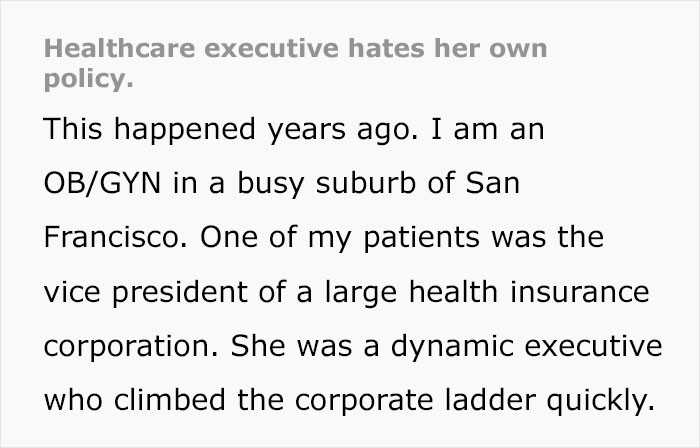
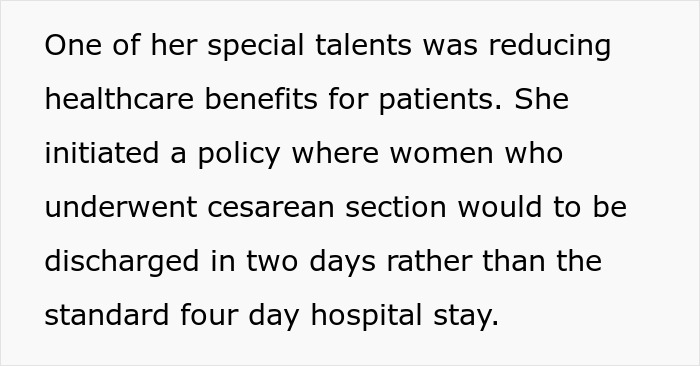

The policy only allowed women who had undergone a cesarean birth to stay in the hospital for two days—any more was considered a waste of money

Image credits: Andrea Piacquadio (not the actual photo)
Healthcare and health insurance are terms that are often used interchangeably; however, one doesn’t always follow the other. Where one is focused on medical practices, the other is focused on the coverage of said practices. As explained on the Business Benefits Group, not everyone that seeks healthcare services has health insurance, and those that have health insurance may not have private insurance, but instead coverage through the government or organization memberships.
However, health insurance is not something that the majority of people can get a hold of, leading to an ethical and social debate on human rights. A recent KFF polling on the public’s experiences with healthcare costs revealed that about half of U.S. adults have difficulty affording healthcare costs.
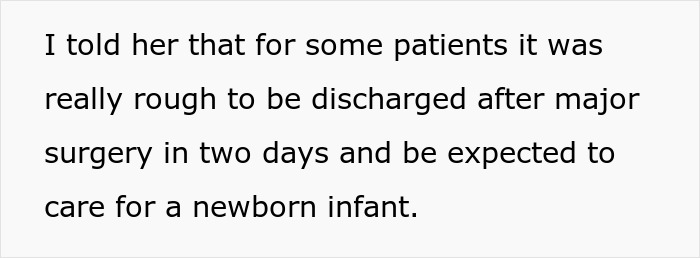
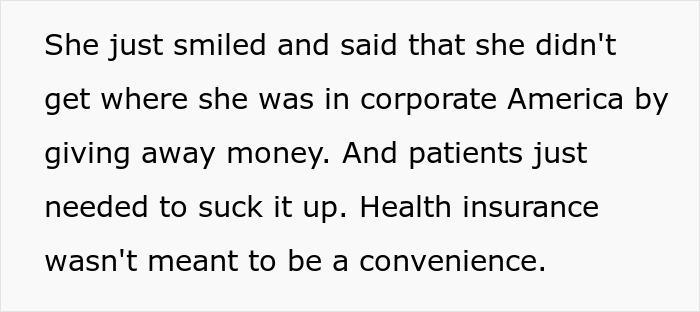
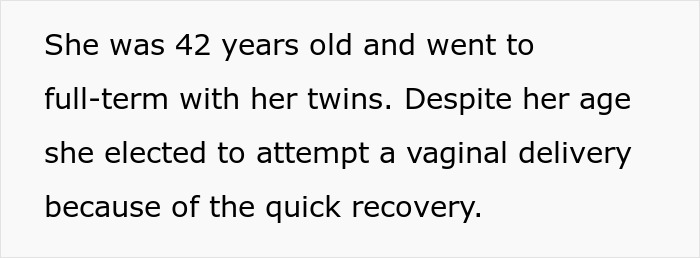
Ironically enough, the VP herself had a complex birth, leading to a cesarean. Once the two days in the hospital were up, she declared the policy to be inhumane

Image credits: Isaac Hermar (not the actual photo)
About four in ten U.S. adults said they have delayed or gone without medical care in the last year due to cost, with dental services being the most common type of care that was put off. A substantial number of adults aged 65 or older reported difficulty paying for various aspects of healthcare, especially hearing services, and dental and prescription drug costs, as they’re not generally covered by Medicare.
Interestingly, the KFF poll found that high healthcare costs disproportionately affect uninsured adults, Black and Hispanic adults, and those with lower incomes. However, even those with health insurance and those with higher incomes are not immune to the high cost of medical care.
Lastly, a study by the Institute of Medicine (US) noted that uninsured adults receive healthcare services that are less adequate and appropriate than those received by patients who have either public or private health insurance, and they have poorer clinical outcomes and poorer overall health than do adults with private health insurance. All in all, the system is very much flawed.
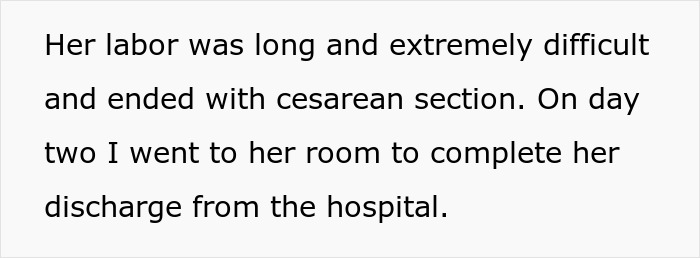
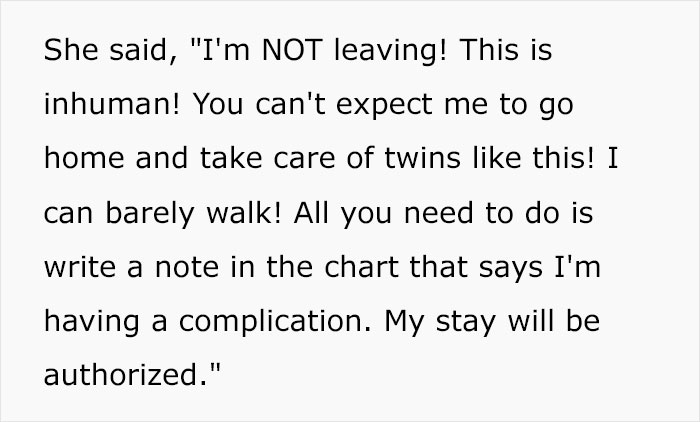
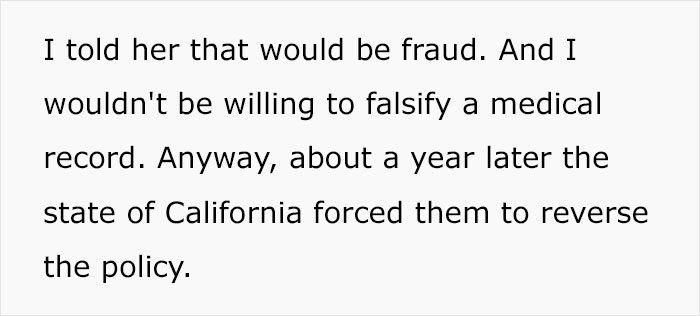
Image credits: TheGynechiatrist
There are two pairs of sentences that I’d like to note: 1) “Patients just needed to suck it up. Health insurance wasn’t meant to be a convenience”; 2) “This is inhuman! You can’t expect me to go home and take care of twins like this!” How very interesting to see the shift in response when you’re the one pulling the short end of the stick.
To be the devil’s advocate for just one second, studies have been conducted to see whether being discharged after one day or two had a significant effect on the mother’s well-being, and the results showed barely any difference. However, this doesn’t mean that hospitals should start kicking women out the day after a C-section, researchers say.
As noted by Amy Norton on Reuters Health, historically, there have been concerns about insurers pushing new moms to leave the hospital before they’re ready. That led to a 1996 law, known as the Newborns’ and Mothers’ Health Protection Act, requiring insurers to pay for a 48-hour hospital stay after a vaginal delivery and a 96-hour stay after a C-section.
Still, the American College of Obstetricians and Gynecologists (ACOG) says a shorter stay after a C-section is an option if the baby is ready to go home—though the mother should meet certain requirements first. They include normal blood pressure, no signs of infection at the C-section site, and adequate pain control, among other things.
In the U.S., where C-sections are done in about one-third of births, women typically stay in the hospital for three to four days after the procedure. That compares with about two days for women who deliver vaginally, showing how unrealistic the insurer’s expectations were when they came up with the policy.
It’s nice to see the consequences of one’s actions come to bite them right back on the behind, especially when it leads to the betterment of policies for generations to come. Let us know your thoughts on this in the comments below, and I shall see you in the next one!
Thankfully, the policy was changed with the Newborns’ and Mothers’ Health Protection Act. The online community rejoiced at this delightful case of karma








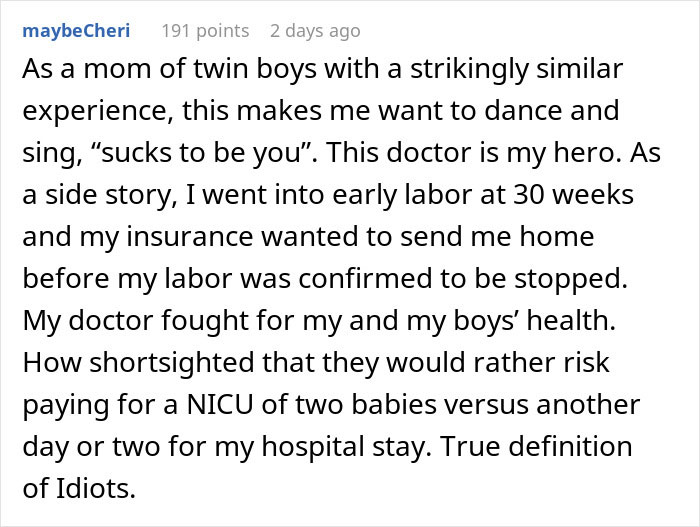

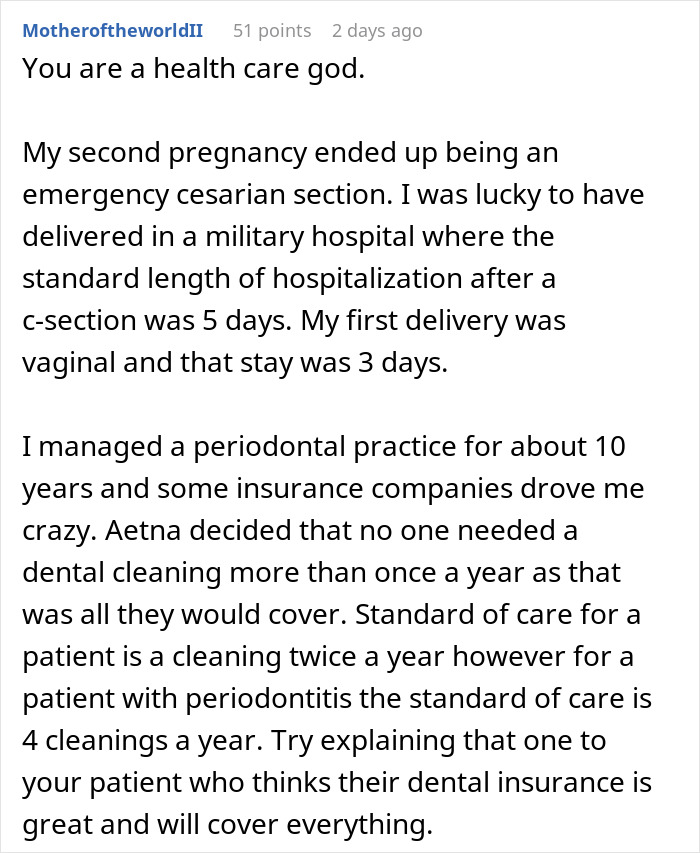

There were those that disbelieved the credibility of such a story, but one thing is certain—the healthcare crisis needs to be dealt with. Leave us your thoughts below!
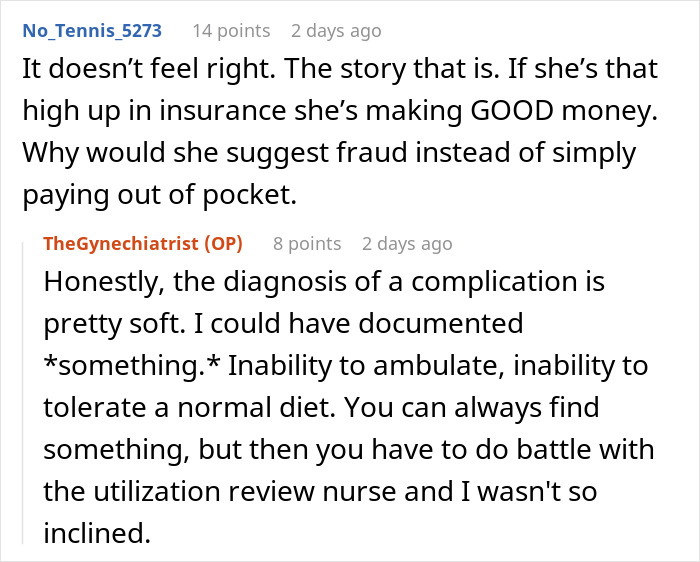
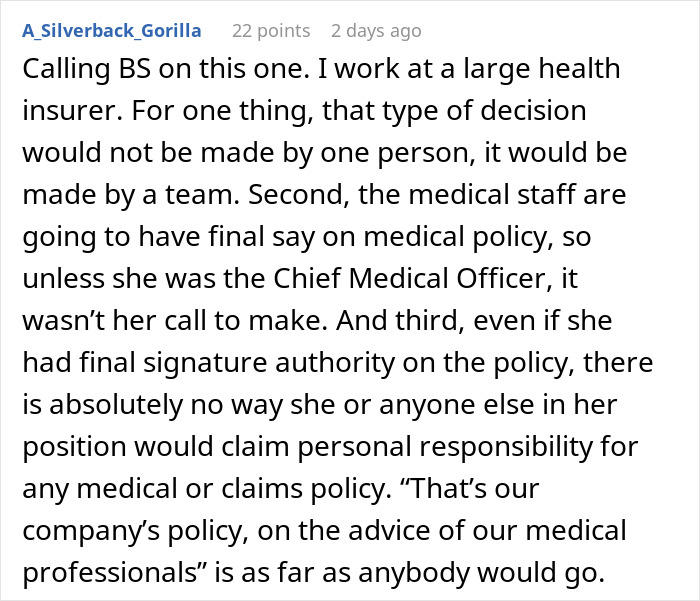

The post Health Insurance Policy Comes Back To Bite Company Exec. That Initiated It In A Case Of Malicious Compliance first appeared on Bored Panda.
from Bored Panda https://ift.tt/eSURH5p

